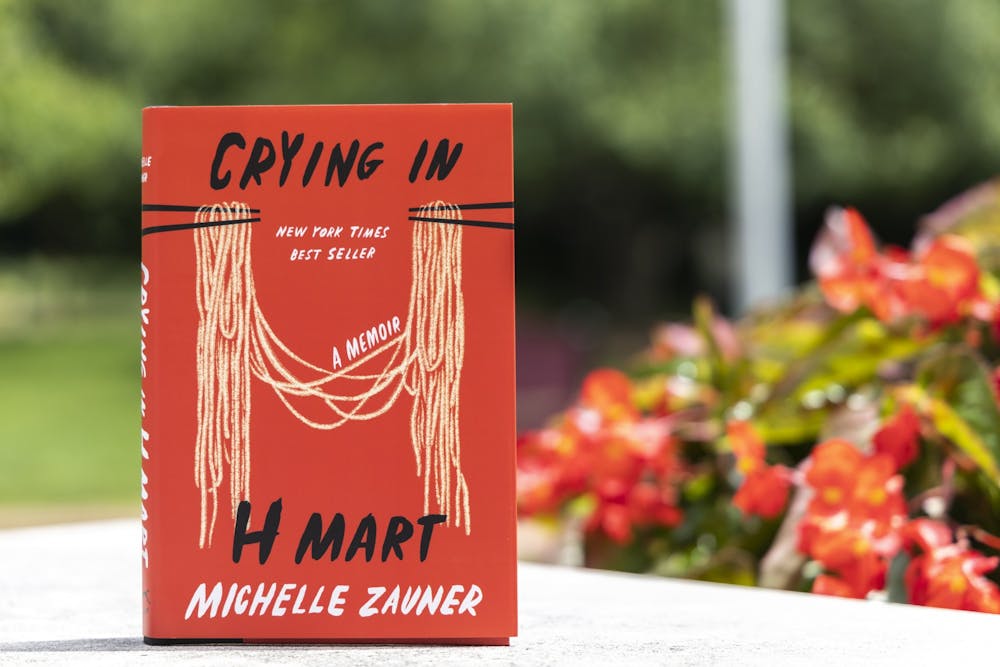“Ever since my mom died, I cry in H Mart.”
This first line of “Crying in H Mart” caught me off guard the first time I read it. Using the title of the book in the very first sentence seemed too obvious. It felt like an amature move from Michelle Zauner’s first book.
However, after finishing the book, I can soundly say this is one of my favorite opening lines of any book. It is terrifically simple yet tells you everything you need to know about what you are about to read. Zauner doesn’t ease into it, sharing right away that this is a book about her and her mother: the good, the bad, the grief and the culture they shared.
Zauner is the lead singer and guitarist of Japanese Breakfast. This memoir, published on April 20, 2021, is an expansion of Zauner's essay of the same name which was published in The New Yorker on August 20, 2018. On June 4, 2021, Japanese Breakfast released their third album “Jubilee” touching on a lot of the same themes in the book.
“Crying in H Mart” revolves around Zauner's relationship with her Korean mother, who died of cancer in 2014. Now, Zauner cries in H Mart, looking at the children eating ppeongtwigi, a food of her childhood, or seeing an older Korean woman, knowing her mother didn’t get to live to be that old.
Zauner knows how to write a book. I was hooked immediately from the first chapter, in awe of the way she described food connecting her to her mother. She said her mother expressed her love through food, the lunches she packed, the meals she cooked.
In this first chapter and through the book’s entirety, Zauner uses these subtle, heartbreaking ideas to convey her sadness. But sometimes, she uses intense, gut-wrenching analogies that lead into a dull ache.
“Sometimes my grief feels as though I’ve been left alone in a room with no doors,” Zauner writes. “There’s no escape, just a hard surface that I keep ramming into over and over, a reminder of the immutable reality that I will never see her again.”
Often when reading the book, I felt like I was imposing on something I wasn’t meant to see. Zauner does not hold back in her writing, sharings gritty details that do not always paint her in the best light.
The deeply personal experiences and devastating moments she shares set the book apart from other memoirs I’ve read. These vulnerable moments make the book all the more personal, like you are experiencing Zauner’s despair, anger and clarity first hand.
One scene that stood out to me comes after Zauner's mother died. Zauner visits a bar in Vietnam while traveling with her father. There, she meets a woman named Quing, an aspiring singer who comes to the bar because she is sad, sad because her parents don’t believe in her.
Zauner shares her mother’s passing, and immediately Quing says Zauner needs to get up on stage and sing karaoke.
“She leaned in closer and stared into my eyes, like she was certain this would solve all my problems,” Zauner writes. “It was how I’d felt about music once, back before everything happened. A pure childlike belief that songs could heal.”
Zauner sings “Rainy Days and Mondays.” Quing sings “My Heart Will Go On.” Both women are plagued by sadness, but find refuge in that bar, at that moment.
This moment feels like it should be in a coming-of-age movie, and Zauner executes the writing flawlessly. The combination of grief and joy makes me tear up everytime I get to this point.
“Crying in H Mart” is one of my favorite books, yet still devastates me. Zauner's writing debut is one to pay attention to as she effectively shares her both inspiring and tragic story.
Zauner will be reading “Crying in H Mart” and participating in an interview June 4 at the Buskirk-Chumley Theater as part of Granfalloon Festival 2022.




